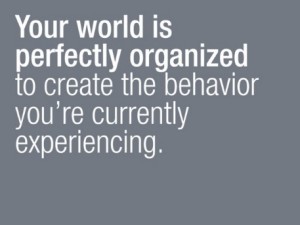
Exit Planning – What does it look like in a Self-Managing Company?
February 2, 2016Let’s examine what your exit strategy might look like as you work toward building a self-managing company. Should you even have one?
Most entrepreneurs have this idea that they’ll work forever, or at least until the day before they die. Is that really a good idea?

For the purposes of this post I’d like to identify Three types of entrepreneurs. Survival, Achievement, and Lifestyle. As in any start-up there are sometimes months and even years of just getting by. Scraping for every last available dollar to keep the venture going. Building a clientele and a business is no task for the faint of heart. As opportunities for growth become more a way of life and the viability of the business is proven I’d shift status to that of an Achievement Entrepreneur. Profit is evident, debt is being eliminated (unless it’s productive debt), and a shift to more consecutive quarters of positive earnings provides a bit of a cushion for the cycles to come. Lastly, a Lifestyle Entrepreneur is able to choose exactly how he or she may want to balance their life between work, family, faith, social, physical, philanthropic and almost any other category of life you’d like to toss in to the mix. Call it a work/life balance.
What an incredible concept to be able to live a Lifestyle that affords the CEO the opportunity to lead in their strengths and passions. They can then build a team around them that can do the same and create a “self-managing” culture and operation that runs flawlessly on all cylinders – at least for a while. Don’t get used to that idea for too long. Yet I digress.
I’ve often wondered if it just makes sense to let it run or get out while you’re on top. Granted, these are two vastly different philosophies and I’ve seen them both work quite nicely but it takes a lot of fortitude to stick it out. Re-invention on a regular basis is inevitable no matter the nature of your business.
Steven Sasson, as an engineer at Eastman Kodak, invented and built the first electronic camera using a charge-coupled device image sensor in 1975. But, the first name that comes to mind when I think digital camera isn’t Kodak. How about Nikon or Canon? Being a technology or even local category leader doesn’t guarantee success. Far from it. Owning and operating a small business has even greater challenges.
So what do we do when we decide to wind it up, or down depending on your perspective. Sell it, keep it, exit but stay connected, or succeed to a family member or colleague? As you can see, there is no shortage of choices.
Here’s 19 questions supplied by the Business Enterprise Institute in Denver, Colorado. It just so happens to be where my daughter lives. Hey Steph!

Denver, Colorado
Consider these questions seriously as you plan your exit.
- When would you like to be done working in your business?
- After you leave your business how much cash will you need (each year) to achieve your personal financial objectives?
- Let’s forget for a moment about who can afford to buy your company. In a perfect world, to whom would you like to sell your company?
- What recommendations have your current advisors made about your eventual exit? Have they urged you to start planning your exit? Have they suggested that you assemble a team of experienced Exit Planning advisors?
- As you think about leaving your business, what keeps you up at night?
- What will you do after you are no longer working in your business every day?
- What is your business worth? How do you know?
- What are you currently doing to enhance the value of your company?
- Are you the primary (or only) sales driver in your company?
- Who handles the day-to-day operations of your company?
- Tell me about the employees that play a significant role in the operation of your company.
- What kind of burden would it create if they were to leave?
- What have you done to motivate and reward those employees to grow the value of your company?
- How have you “handcuffed” them to your business?
- Has anyone offered to buy your company in the last few years? What happened?
- A. (If the business is co-owned): Do you and your partner have a buy-sell agreement in place? When was the last time you reviewed that agreement? Is that buy-sell agreement funded? When was the last time you had a formal valuation prepared for your company?
- (Sole Owner) What arrangements have you made to explain to your family what you want to happen with your company if you are no longer around?
- If you could no longer run your company, what arrangements have you made to make sure that your family will benefit from your life’s work?
- Tell me about any Estate Planning you have done.
- Who do you turn to for advice as it relates to your business?
This is serious business – your future is at stake and many of those you love.
By all means have some fun planning this. It’s a time of celebration and transition. Make it count. Keep the legacy alive.
 Steve Adams
Steve Adams
Sr. Business & Life Coach, Board Chairman & Entrepreneur